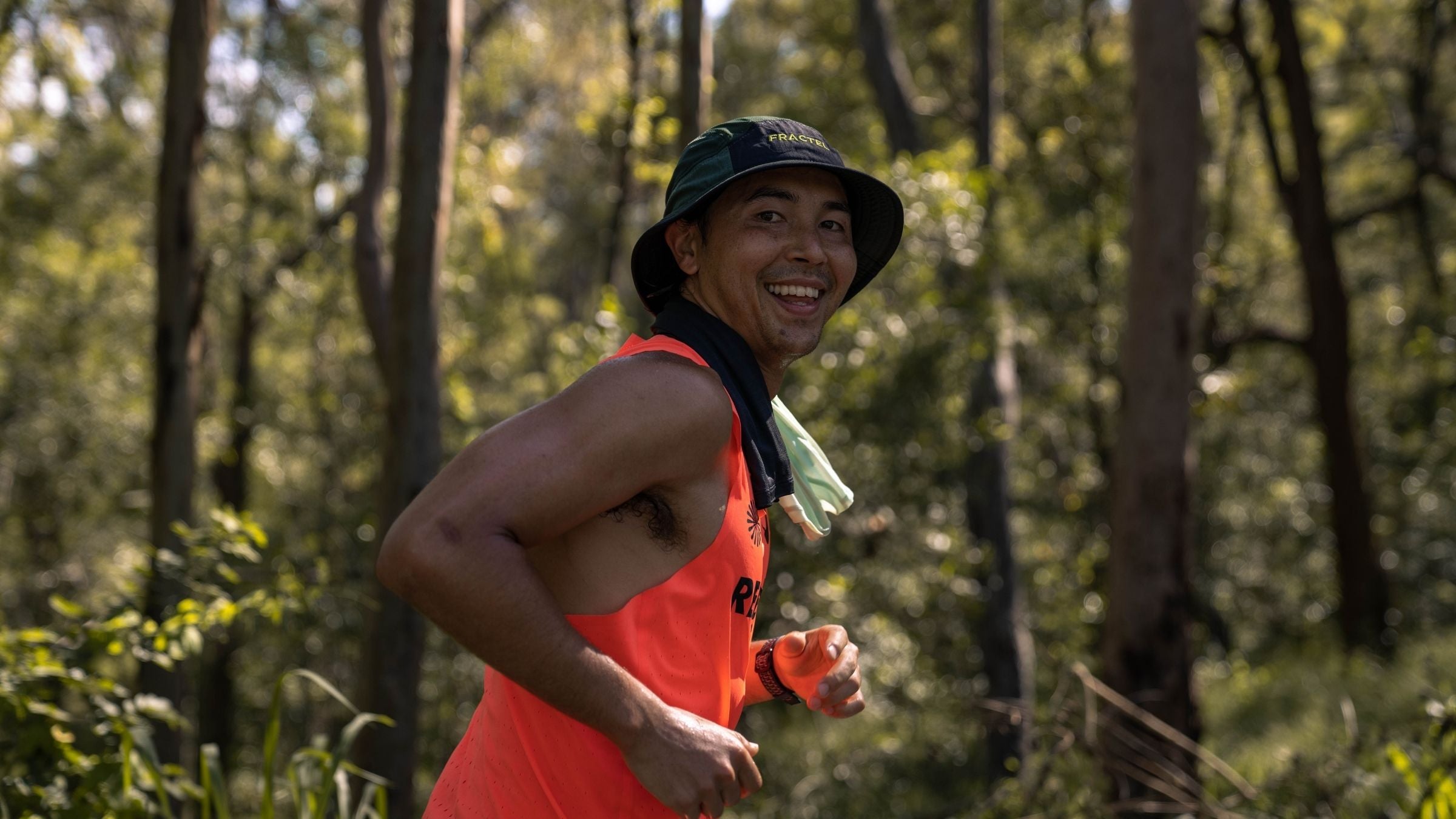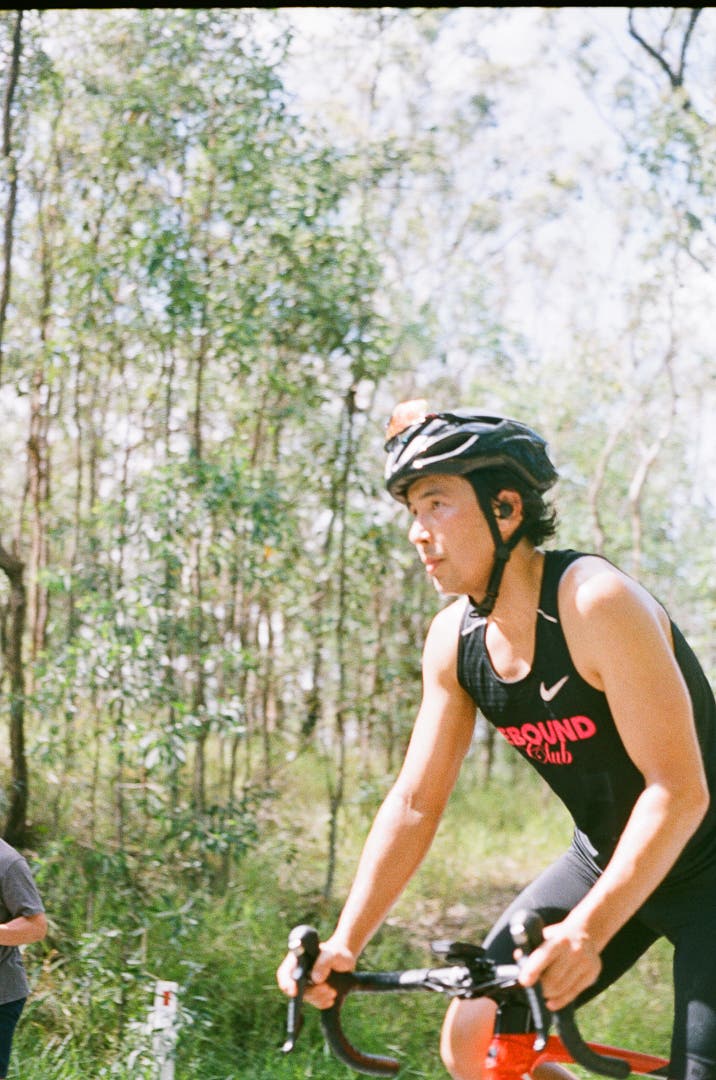From Pack-a-Day Smoker to Everestman Record Holder

(Photo: Kent Ohori)
In 2017, Australian Kent Ohori was a pack-a-day smoker. In 2020, he qualified for Kona in his first attempt at racing Ironman. In 2022, he completed the fastest Everestman triathlon to date—a challenge involving more than 40 hours of racing the equivalent of three Mount Everests by swimming 8,848 meters, cycling 8,848 meters of elevation gain, and running that same elevation.
When Ohori looks back on what he’s accomplished in that short time, he can hardly believe it. After all, he didn’t set out to take on epic challenges. He just wanted to rehab a running injury.
“I had previously only been running, but discovered my love for cycling due to an overuse injury which had me hanging up the running shoes for six weeks,” Ohori said. “During the recovery, I also began to swim, which led me to signing up for my first race.”
That’s not to say Ohori’s transition to triathlon was seamless. “The hardest part was just getting started,” he said. “It really takes a lot of willpower and a strong ‘why’ to push through the pain that comes with the first few training sessions.” Even after getting his bearings with swimming and cycling, Ohori admits his first run post-injury was still a mental setback. (“It felt as though my lungs were about to collapse.”) Yet, there was something about pushing on that was immensely satisfying. Even more satisfying was crossing the finish line of his first triathlon, an Olympic distance in Mooloolaba on Australia’s Sunshine Coast. Immediately after, he signed up for and raced a 70.3, then a full Ironman, where he placed second in his age-group and earned a spot to the world championship race.
What else could he do if he set his mind to it? The question rolled around in his brain daily, inspiring him to get up every morning and put in the training time for his next challenge—whatever that would be. When races were canceled during the height of the COVID pandemic, Ohori took up Everesting challenges, where he would ride or run routes that accumulated 8,848 meters in elevation gain (the height of Mount Everest). Then he heard about endurance athlete Mayank Vaid completing a new challenge of his own invention, Everestman. In this Everesting-meets-Ironman format, the athlete races against the clock while accumulating the 8,848 meters of Everst elevation gain over each of the three triathlon disciplines. (Because it is not possible to gain elevation in the swim, this leg of the challenge is simply 8,848 meters long, or 5.4 miles.) When Vaid completed the challenge, he did so in 71 hours and 7 minutes, with 55 hours of moving time. Ohori thought he could break that and set a new Everestman record.
For Ohori, the mental challenge was just as intense as the physical. Doing it in the peak of Australia’s summer, where temperatures reached over 90 degrees Fahrenheit, required Ohori to manage a host of complications, including dehydration and loss of appetite. “I remember at one point early morning on day two, I had to force myself to eat two McMuffins and four hash browns, even though I wasn’t hungry,” Ohori said. “It’s such a strange feeling to lose my appetite, as I’m usually always hungry.”
But the challenge also gave Ohori the time and space to reflect on many things—specifically, how far he had come from just five years ago.“As much as I didn’t think so at the time, I really look back and think how lucky I was for getting this injury,” he said. “There are so many people out there these days that are really pushing the limits of what we perceive humanly possible and this was, at the time, my own unique way of pushing my limits.”

As with every race Ohori has conquered, a finish line crossed led to the start line of a new challenge. In May, he will attempt to complete an Everesting cycling challenge in five states along the east coast of Australia in seven days. Along the way he’ll raise funds and awareness for LIVIN, a charity organization that aims to reduce the stigma of talking about mental health.
“Just knowing that whatever you may think is out of your realm of possibility, please think again,” Ohori said. “We are all capable of more than we can imagine.”